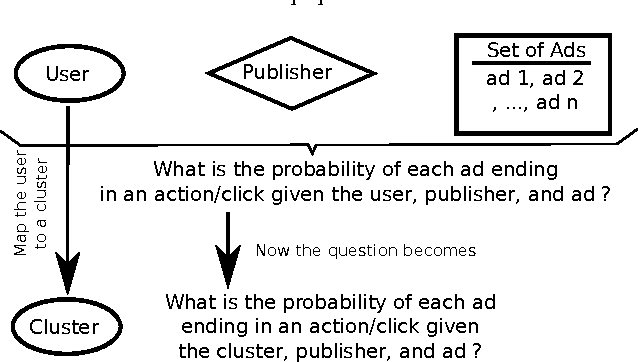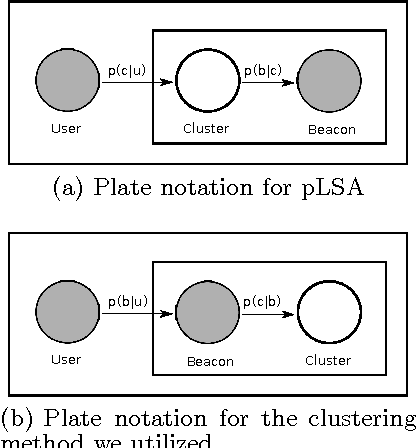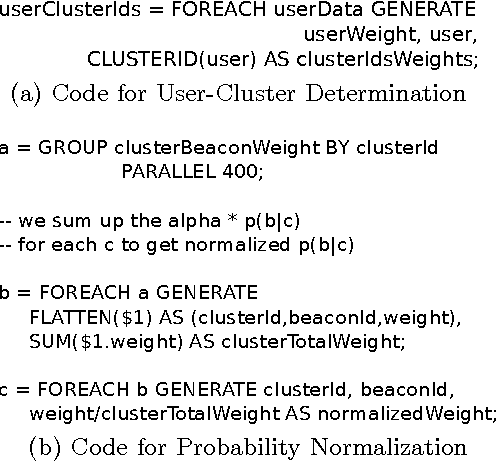User Clustering in Online Advertising via Topic Models
Paper and Code
Feb 24, 2015



In the domain of online advertising, our aim is to serve the best ad to a user who visits a certain webpage, to maximize the chance of a desired action to be performed by this user after seeing the ad. While it is possible to generate a different prediction model for each user to tell if he/she will act on a given ad, the prediction result typically will be quite unreliable with huge variance, since the desired actions are extremely sparse, and the set of users is huge (hundreds of millions) and extremely volatile, i.e., a lot of new users are introduced everyday, or are no longer valid. In this paper we aim to improve the accuracy in finding users who will perform the desired action, by assigning each user to a cluster, where the number of clusters is much smaller than the number of users (in the order of hundreds). Each user will fall into the same cluster with another user if their event history are similar. For this purpose, we modify the probabilistic latent semantic analysis (pLSA) model by assuming the independence of the user and the cluster id, given the history of events. This assumption helps us to identify a cluster of a new user without re-clustering all the users. We present the details of the algorithm we employed as well as the distributed implementation on Hadoop, and some initial results on the clusters that were generated by the algorithm.
 Add to Chrome
Add to Chrome Add to Firefox
Add to Firefox Add to Edge
Add to Edge